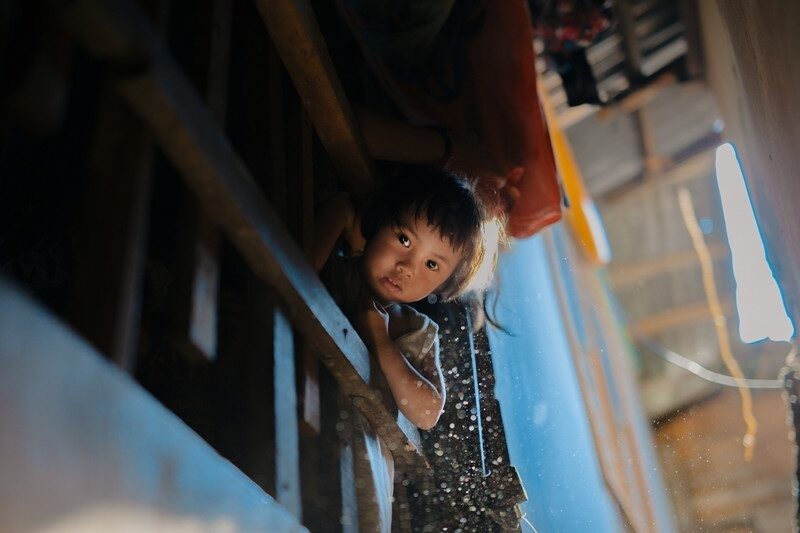As governments implement lockdowns to curb the spread of COVID-19, another pandemic is on the rise: online sexual exploitation of children (OSEC). In this crime, children are sexually abused in front of a video camera, exploited for purchase by online child sex offenders all over the world.
The Philippines is the global hotspot on OSEC. In recent years, the Philippines has received more OSEC referrals from international law enforcement than any other country.
Thankfully, the Philippine government has taken a stand against online exploitation of children. In February of 2019, the Philippine Internet Crimes Against Children Center (PICACC) was established. PICACC is a cooperation among domestic and international law enforcement, namely the Philippine National Police’s Women and Children Protection Center (PNP-WCPC), the National Bureau of Investigation’s Anti-Human-Trafficking Division (NBI-AHTRAD), the Australian Federal Police (AFP), and the United Kingdom National Crime Agency (UK NCA); in partnership with non-governmental organization, International Justice Mission (IJM).
But there are clear indicators that COVID-19 is creating an unprecedented surge in online abuse of vulnerable Filipino children. The eSafety Commissioner, Australia’s national independent regulator for online safety, recorded an 86-percent increase in image-based abuse over the three weeks preceding April 9, 2020. The Australian Federal Police (AFP) and the Australian Center to Counter Child Exploitation have seen new child abuse forums established as a result of COVID-19 stay-at-home measures and have heard of other sites crashing in recent weeks due to increased traffic.
A particularly disturbing aspect of OSEC is that it is largely a family-based crime—meaning home is a place of vulnerability and exploitation, rather than a place of safety.
Since 2011, operations supported by IJM in the Philippines show that more than half of arrested traffickers were parents, relatives or close family friends. Analysis reveals that 38 percent of traffickers were the victims’ biological parents. While lockdowns protect people from infection, they can also trap vulnerable children at home with abusers and traffickers. Lockdowns also pose a barrier to detection because children have almost no access to teachers or community members to whom they might disclose abuse or display signs of abuse.
As the global pandemic of OSEC surges, law enforcement around the world is already overwhelmed by the COVID-19 response. The need is even greater for the private sector to step up to stop online child sexual abuse. At the forefront should be tech companies, whose platforms have unwittingly and unintentionally enabled the crime. Current image-hashing technology used to combat exploitative materials online is inadequate. While PhotoDNA, the tool widely used by tech companies today, detects known exploitative content, it is not designed to identify newly created child sexual exploitation videos or photos—much less spot the livestreaming of child sexual abuse. Thus, victims who experience livestreamed abuse repeatedly over months and years are often only rescued after offenders purchasing abuse content are arrested in their countries.
The lack of technology to detect newly produced or previously unidentified abuse material has never been more concerning as it is now, with COVID-19 lockdowns unintentionally creating a surge in OSEC.
Now more than ever, we need tech companies to innovate technologies to detect live streaming of abuse. By collaborating more proactively with law enforcement and child protection NGOs, tech companies could build tailor-made solutions that could change the course of history for vulnerable children.
In addition, tech companies should enhance the quantity and quality of reports they send to the CyberTipline when they detect possible abusive content. Instead of providing merely the minimum information required for a CyberTip, tech platforms should report all relevant information allowed by law to better aid authorities in identifying and rescuing victims.
Similarly, financial institutions with services that traffickers use to receive payments can make a difference by strengthening measures to spot transfers linked to child sexual exploitation. To aid in detecting OSEC-related money transfers on their platforms, tech and financial companies should collaborate with law enforcement, financial intelligence units and child protection NGOs to identify relevant indicators. Such resources have already been produced, separately, by IJM and AUSTRAC (Australia’s financial intelligence and regulatory agency).
Philippine law enforcement are battling OSEC today, but, like the coronavirus, the epidemic of online child sexual exploitation is not limited to one nation. With increased assistance from international donors and heightened collaboration from tech and financial companies, the Philippines can develop and hone interventions that will eventually protect children across the globe.
Samson Inocencio Jr.
National Director of International Justice Mission Philippines
